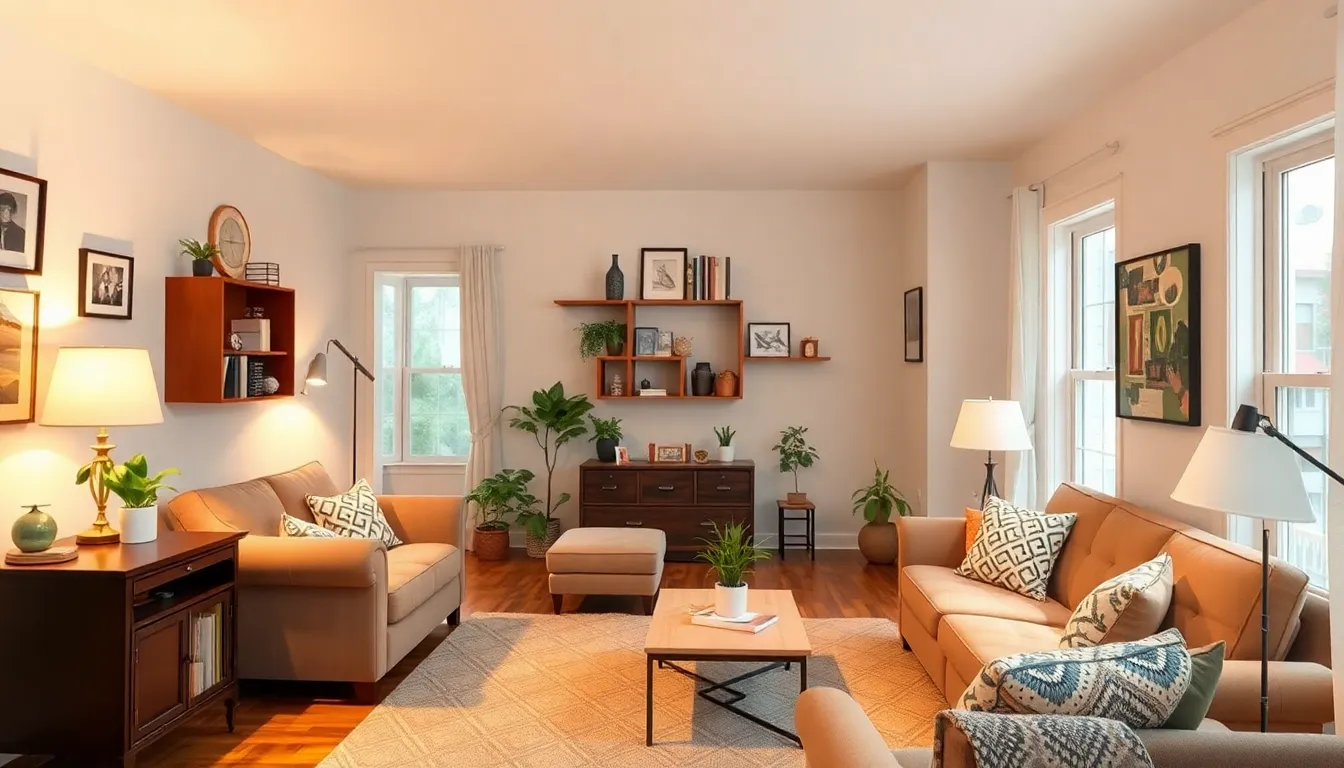Table of Contents
ToggleLooking for a place to call home without the hassle of a landlord breathing down your neck? Private-owned houses for rent might just be the golden ticket. Imagine living in a cozy haven where you can decorate freely, host epic movie nights, and never hear the dreaded sound of a property manager knocking on your door for an inspection.
Overview of Private Owned Houses for Rent
Private owned houses for rent offer unique living options that cater to diverse needs. Tenants can often find properties with personalized features and amenities. Many landlords prioritize tenant satisfaction, ensuring that renters feel at home. The flexibility in lease agreements often attracts those seeking temporary residences.
Rental prices for private owned houses vary based on location, size, and condition. Areas with higher demand tend to reflect increased rental rates. It is essential to research local property markets for a competitive understanding of available options. Communications with landlords can foster positive relationships, enabling easier negotiations on terms.
Private owned houses typically provide greater privacy compared to apartment complexes. Tenants can enjoy quiet living with less foot traffic and disturbances. Most properties come with outdoor spaces, which enhance leisure and entertainment experiences.
Availability of services and utilities may differ across private rentals. Some homeowners include maintenance services, while others expect tenants to manage upkeep. Potential renters should clarify these details before signing leases to avoid misunderstandings.
The process of finding these rental homes often involves online listings, local real estate agencies, and word-of-mouth recommendations. Websites dedicated to home rentals usually provide comprehensive listings, complete with photographs and detailed descriptions. Visiting properties in person allows tenants to assess conditions and surroundings thoroughly.
Private owned houses for rent represent appealing choices for individuals and families. By considering specific needs and prioritizing personal preferences, renters can successfully navigate the rental market.
Benefits of Renting Private Owned Houses

Renting private-owned houses provides significant advantages, including flexibility, freedom, and personalized living experiences.
Flexibility and Freedom
Renting private-owned houses offers tenants the flexibility to choose lease terms that suit their specific circumstances. Many landlords are open to shorter or longer agreements, allowing individuals and families to adjust living arrangements based on life changes. Without strict regulations common in apartment complexes, renters enjoy freedom in how they use their space. Tenants often have fewer restrictions regarding pets or alterations, promoting a sense of home tailored to their preferences. Locations vary widely, enabling individuals to find accommodations that meet their lifestyle needs. Overall, private rentals cater to those desiring control over their living environment.
Personalized Living Spaces
Private-owned houses present opportunities for personalized living spaces that reflect tenant styles. Individuals can decorate, arrange furniture, and enhance outdoor areas, creating settings that feel like home. Renting a standalone house allows residents to cultivate gardens or set up outdoor entertainment areas, fostering a unique atmosphere. This flexibility encourages creativity in design and organization, enabling occupants to prioritize comfort and functionality. Additionally, many landlords appreciate tenant input on maintenance, further enhancing the living experience. The option to tailor personal spaces supports a sense of belonging, making renting an appealing choice for many.
How to Find Private Owned Houses for Rent
Finding private-owned houses for rent requires a strategic approach. Utilizing various resources enhances the likelihood of securing the ideal rental.
Online Platforms and Resources
Online platforms provide extensive listings of private-owned houses. Websites like Zillow, Craigslist, and Facebook Marketplace offer search filters for location and price range. Many landlords directly post available properties on these sites, making it easier for potential renters to connect with them. Renters can also check local real estate websites for exclusive listings. These platforms often feature photos and detailed descriptions of each property, helping renters make informed decisions. By using multiple online tools, individuals can expand their search and find options that meet specific needs.
Networking and Local Advertisements
Networking plays a crucial role in discovering private-owned houses for rent. Engaging with friends, family, and colleagues often leads to valuable leads. Community bulletin boards display local rental opportunities, connecting renters with landlords looking to fill vacancies directly. Attending neighborhood events encourages conversations about available homes. Social media groups focused on local rentals can also be a rich resource for listings. Leveraging local connections and advertisements often leads to finding rentals not advertised widely, increasing the chances of making a successful rental agreement.
Considerations When Renting
Renting a private-owned house involves important factors that renters should assess before committing. Understanding lease agreements and maintenance responsibilities plays a crucial role in a positive rental experience.
Lease Agreements and Terms
Lease agreements define the terms of the rental arrangement. Every lease should specify the duration, rent amount, and conditions regarding pets or alterations. Read the entire document to ensure clarity on security deposits and late fees. Different landlords may offer varied terms, so comparing agreements can reveal advantageous options. Tenants may prefer flexible leasing periods, accommodating temporary lifestyle changes. Negotiating terms is often possible if prospective renters approach landlords with specific needs.
Maintenance Responsibilities
Maintenance responsibilities require clear communication between landlords and tenants. Typically, landlords handle major repairs and upkeep of the property, while renters are tasked with day-to-day maintenance. Understanding who is responsible for yard work and routine cleaning can prevent disputes. Documenting property condition upon move-in helps address issues that may arise during tenancy. Tenants should inquire about the process for reporting repair requests. Direct communication with landlords regarding maintenance needs fosters a cooperative living environment.
Renting private-owned houses can be a rewarding experience for those seeking a unique living space. The blend of flexibility personalization and privacy makes these rentals an attractive option. With landlords often prioritizing tenant satisfaction and offering favorable lease terms renters can find environments that truly feel like home.
Exploring various platforms for listings and leveraging community connections can lead to discovering the perfect rental. By understanding lease agreements and establishing clear communication with landlords tenants can ensure a positive living experience. Ultimately private-owned houses for rent provide opportunities for individuals and families to thrive in a space that meets their needs.




